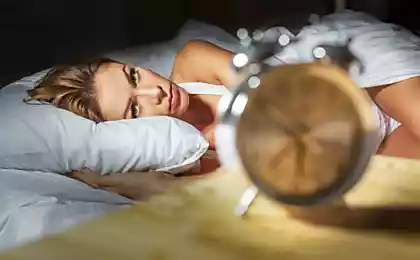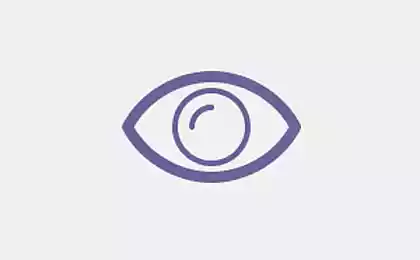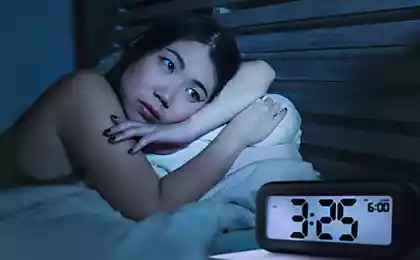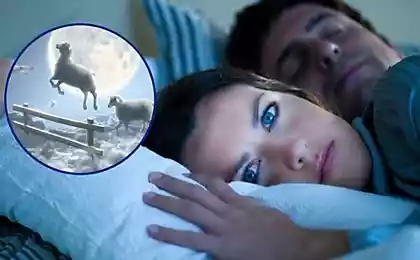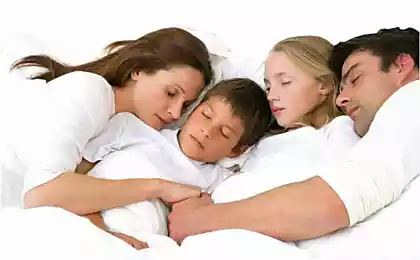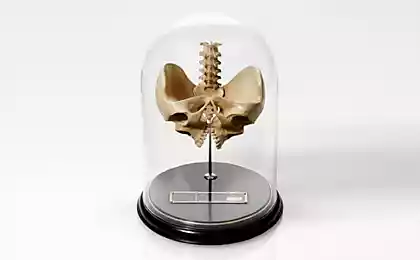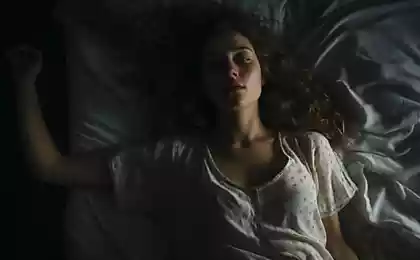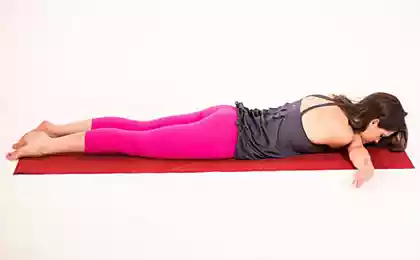624
A night of hard - why do we suffer from insomnia and how to get rid of it
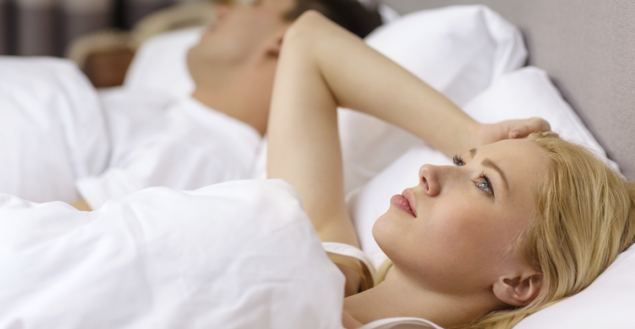
Causes of insomnia: psychological trauma and masked depressionWe are accustomed to thinking of insomnia as lack of sleep, often quite dramatic. And yet her academic description sounds much more accurate — and far more hopeful. "Handbook of diseases" defines insomnia as "a subjective feeling of insufficient sleep", which includes Prasangika (delayed sleep onset), intrasonics (violation duration and sleep depth) and postranjska (violations of speed and Wake-up time) disorder, or a combination. In the list of the International classification of diseases (ICD) insomnia is described as a violation of falling asleep, maintaining sleep, early awakening or even as a sleep which brings restoration and recreation.
According to statistics, in one form or another insomnia during life suffers from 30 to 45% of the adult population — i.e. almost half of all people in the world. Insomnia can be acute, transient or chronic, primary or secondary.
Primary insomnia referred to the total sleep disturbance for more than one month, for which you cannot find the "external" explanations and which occurs due to internal, personal causes. This insomnia always impact on the daily condition of the body, so if a man sleeps little, but it feels good, perhaps it is enough six hours under the blanket.
Different people need different amounts of sleep; furthermore, according to the researchers, with age, our need for it is changing: if children and teenagers should sleep for eight hours a day and more, after 25 years a person on average only seven hours, after 45 years — six and a half, and after 65 years to six.
Secondary insomnia also affects daily health, but, unlike the primary, it has an external cause: traumatic psyche of the situation (some of which may be quite harmless at first glance, love breaks, for example), physical illness, jet lag, stimulants and some other medications, caffeine, nicotine, alcohol and drugs. In the list of less common causes — obstructive sleep apnea (frequent breathing stops during sleep), the defeat of the hypothalamus traumatic brain injury and encephalitis.
Also insomnia can occur with depression — or even be her "mask". In this case, patients usually complain of constant waking early (three to four hours in the morning), reducing the duration of sleep and the lack of effect of hypnotics drugs. In masked depression insomnia is almost always, but not always the only way to "Express yourself".
Periods of poor sleep may alternate with periods of prosperity and health, and may from time to time be transformed into headaches, or pains in region of heart and stomach. Patients who complain of a sleeplessness, often in parallel being treated for gastritis or colitis, or thyrotoxicosis, neurasthenia, soldier's heart dystonia, or cholecystitis, but in the survey they usually do not find physical illness, which could tie it in with sleep disorders.
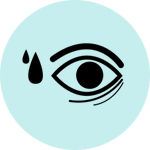
The element of anxiety: fear vs sleepprominent role in the formation of insomnia plays our attitude towards it. Dysfunctional beliefs about sleep sometimes themselves cause problems with him, which, in turn, give the fear more power. Today there are methods of assessment such dysfunctional beliefs developed by the canadian sleep by Maureen Charles. Maureen argues that the basis of insomnia can be anxiety in relation to sleep, repetitive thoughts about the possible or actual negative consequences of its loss, unrealistic expectations about sleep and insomnia treatment, and even misconceptions about its quantity and quality.
In practice, this looks very scary: patients saying that the bed becomes "trom of death" a dark room "prison", and watch "judgment." The more people with dysfunctional beliefs looks at his watch, the more he panics. And the more anxiety, the less I want to sleep. Can be reached and to panic attacks when the breath quickens, heart starts pounding in his chest, "shakes" hands and feet feel cold or numb and want to jump, to run, to scream — which in the end really may occur to the surprise of family and neighbors. A day in this disorder, people feel overwhelmed, and with the approaching night begin to fear that their nightmare again, — which occurs on the same day or the next night.
Russell foster, Professor of neuroscience from Oxford, I am sure that waking up in the night is not a reason for alarm. "Many people Wake up at night and panic,' he says. — I tell them that they are experiencing a relapse bimodal sleep". Today, many researchers believe that before the invention of street lighting in many regions was dominated by the model of "two dreams", where people Wake up in the middle of the night for prayer, reading, or sex, or even communicate, and then fell asleep again.
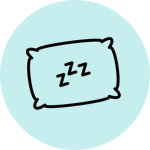
Non-drug means: sleep hygieneOne of the basics of dealing with insomnia, if it is not caused by a traumatic brain injury, encephalitis, and other physiological causes, is the sleep hygiene. To bed and getting up experts advise at the same time, sleep on wide comfy bed, quiet, well ventilated room and in complete darkness. The last condition is mandatory all others: in the dark the pineal gland, located in the Central part of the brain begins to produce melatonin, the so — called "sleep hormone" that regulates circadian rhythms of sleep and wakefulness. By the way, scientists from Harvard University found that blue light emitted by displays of computers and mobile devices, reduces melatonin production, and those who use gadgets before going to sleep, difficult to fall asleep. Interestingly, a similar spectrum of light used in light therapy, which is necessary for the patients with seasonal affective disorder when the drowsiness increased, and cheer just lacking.
There are other rules that help to sleep better without drugs: for example, if you have the crucial role played by the fear of not getting enough sleep, you need to stop night looking at his watch. Practice shows that even in the "sleepless" nights we sleep more than it seems, because in reality may not consciously track the duration of sleep. Sometimes a person feels that it's only been 10 minutes and sleep was not, although in reality it is an hour and a half happily nozzles in the pillow.
Also, many patients find it helpful to cope with insomnia and its impact on the realization that sleep disturbance is not his lack and lack is not a disaster. Less dramatic attitude towards the situation allows you to feel better even after a very eventful night, and in the end easier to cope with the situation.
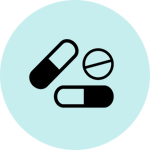
Traditional hypnotics: mechanism of blockade and architecture of sleepToday, there are three generations of hypnotics. The first presented with barbiturates (for example, "Valocordin"), antihistamines (such as "Suprastin") and bromides. The barbiturates are the most dangerous representative of the group because cause severe drug dependence and withdrawal if you cancel. Today, they are almost never prescribed as hypnotics, but 30-40 years ago in many Soviet families could find a grandma or grandpa, mom or dad sitting on the barbiturates or host them from time to time.
Barbiturates cause nerve cells to polarize and lose activity due to the increase in the number chemosensing ion channels and additional "influx" of chloride ions to the cell. This gives not only a sedative-hypnotic effect, but also leads to relaxation of muscles. "Barbituraty" differs from natural sleep: falling asleep is easier, but the fast phase begin to dominate over slow, causing the patient to appear too vivid dreams and nightmares, and the day comes fatigue, or even present nystagmus.
Antigistaminnye drugs act differently. Histamine is known as one of the key neurotransmitters of wakefulness, so that the blockade of H1 histamine receptors causes sedation. As well as barbiturates, antihistamines disrupt sleep architecture, shifting its phase, and often cause daytime sleepiness and aggression. The bromides are used as sedatives from the XIX century, do not: ions of bromine selectively accumulate in neurons, increasing the inhibition, but without affecting the processes of excitation. However, these substances, unlike barbiturates and antihistamines, is very slowly excreted, so their fans can make chronic intoxication — bromism.
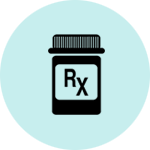
New sleep: the sleep hormone and receptor actionIn the late twentieth century in the world of medical practice, a host of drugs to receptor actions that differ from each other in terms of frequency and spectrum of side effects and cost. Almost all of them in Russia are sold only on prescription. Also today, there are preparations based on melatonin, which are sold freely. The active ingredient here is a synthetic analogue of the hormone of the pineal gland, responsible for the cycle "sleep-Wake". Melatonin drugs are popular in the Nordic countries and also among people who often change time zones. As with any medication, they have, of course, there are contraindications and side effects: headache, nausea, and inconceivable vivid nightmares, able to ward off these pills once and for all for one bad night. In addition, today there are many over-the-counter drugs of natural origin: for example, herbal-based motherwort, peony, Valerian and other plants, the effect of which is based on the action of alkaloids and flavonoids. The potential for such drugs to patients is often underestimated — although, as with any chemical substances, these can spring a surprise: for example, Valerian can cause a paradoxical reaction in the form of nervous excitement and even tremor instead of the expected drowsiness.
Anyway, regardless of the reasons why insomnia occurs, the cure should choose a doctor, not a pharmacist or a physician on the Internet. Experts from the world health organization (who) even argue that anxiety is "a normal reaction to stress" and medication, you should assign "only in cases of excessive anxiety that prevents normal activity". "An elementary discussion of the causes of insomnia and anxiety, as well as informing about the shortcomings of medical therapy often allows you to help patients without resorting to prescription drugs," say the representatives of the who. Experts believe that prolonged use of hypnotics is ineffective, and short-term not always possible to solve the real problem: eliminate causes of secondary insomnia or to reduce anxiety in primary. The latter, incidentally, often much easier to do due to established circadian rhythm, sleep hygiene, walking and sports, simple elements, which in fact may be the key to a high quality of life.
Icons: 1) Ryan Choi, 2) Emily Haasch, 3) Mayene de La Cruz, 4) Joe Manzella, 5) Cris Dobbins.
Source: theoryandpractice.ru

